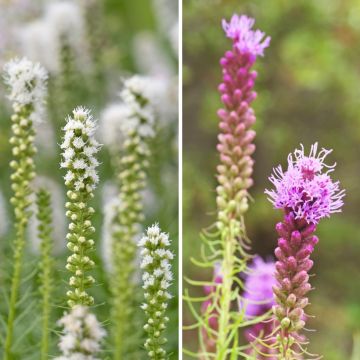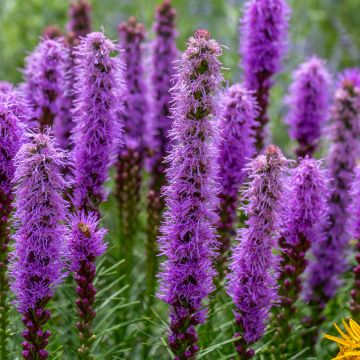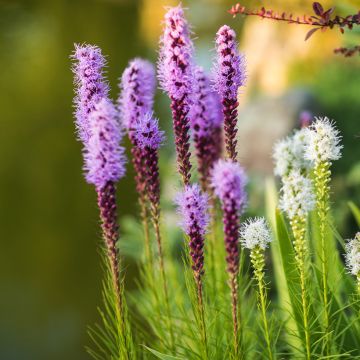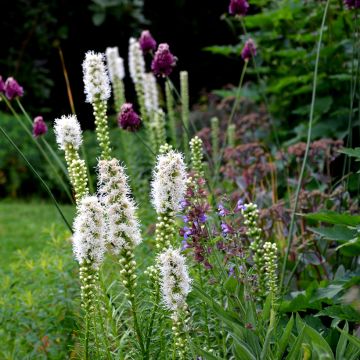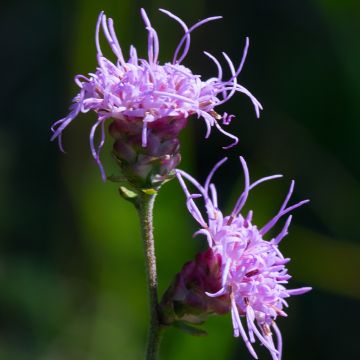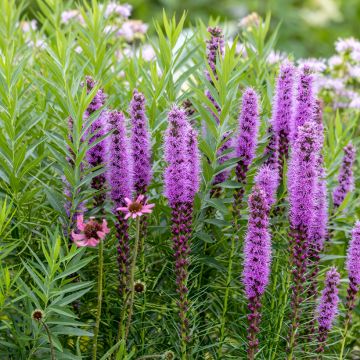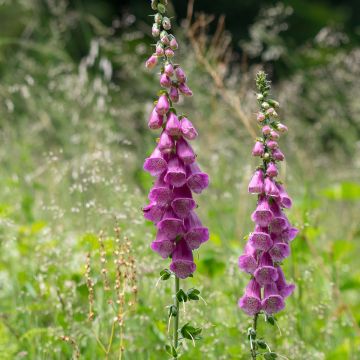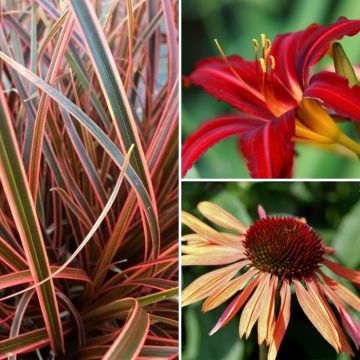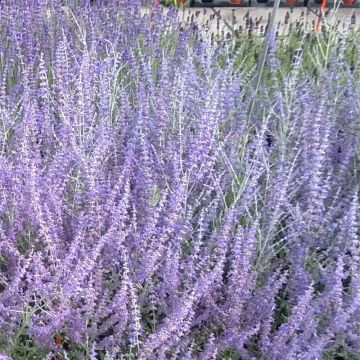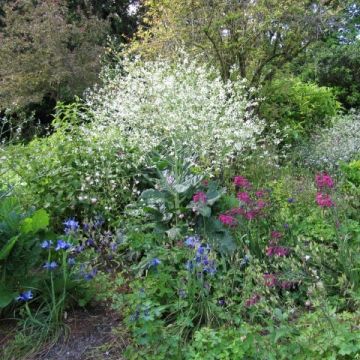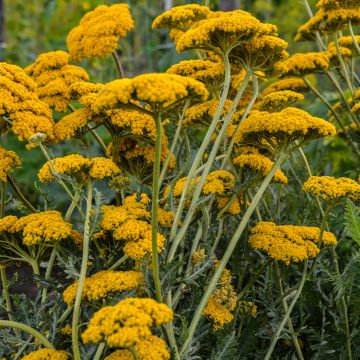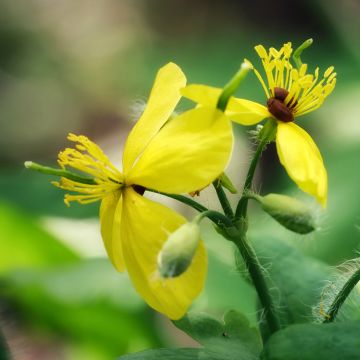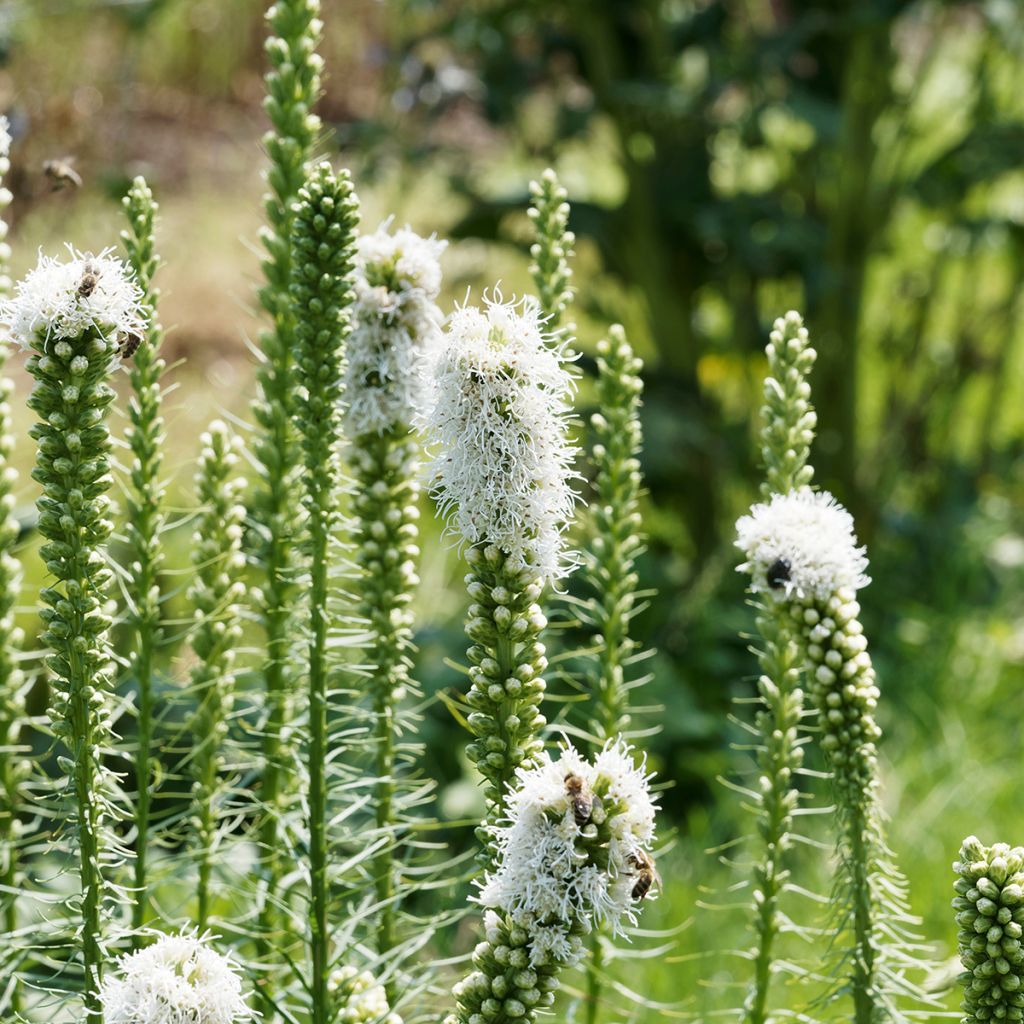

Liatris spicata Floristan White - Dense Blazing star
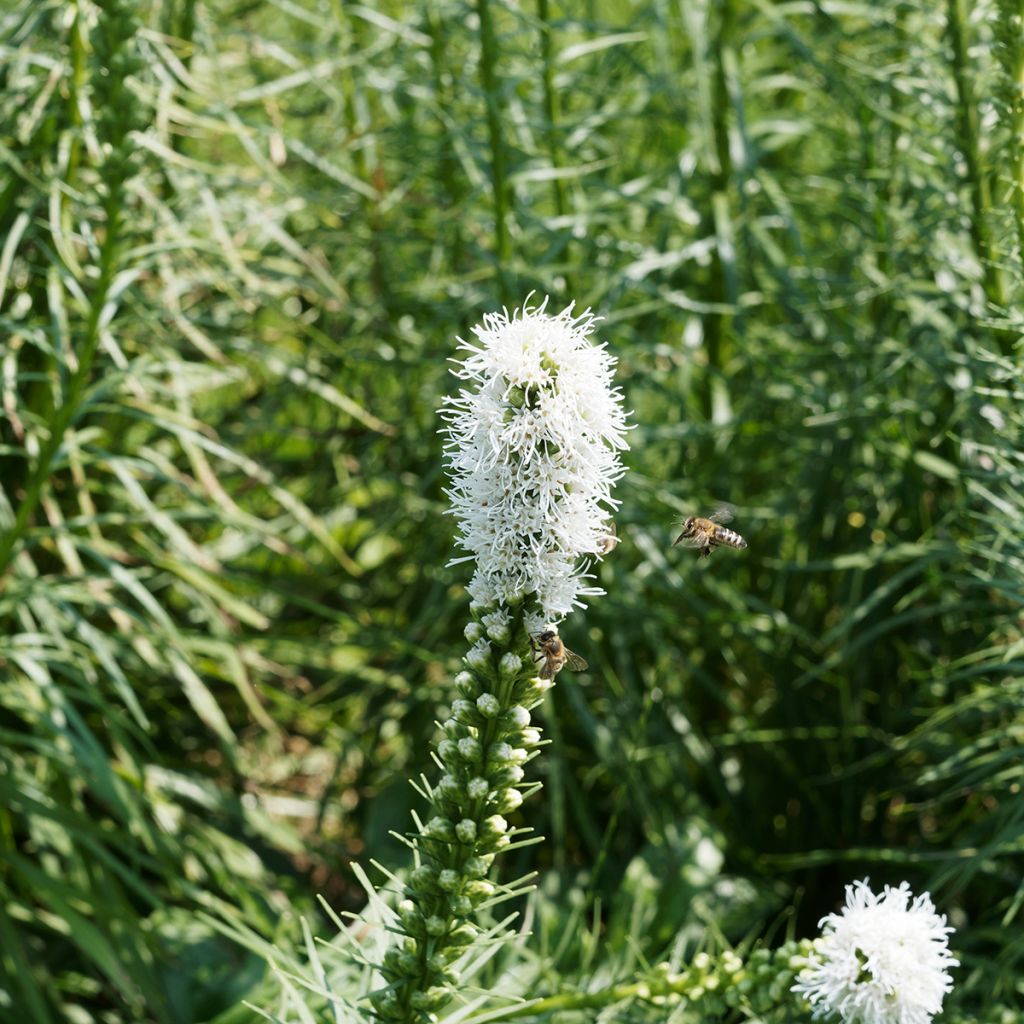

Liatris spicata Floristan White - Dense Blazing star
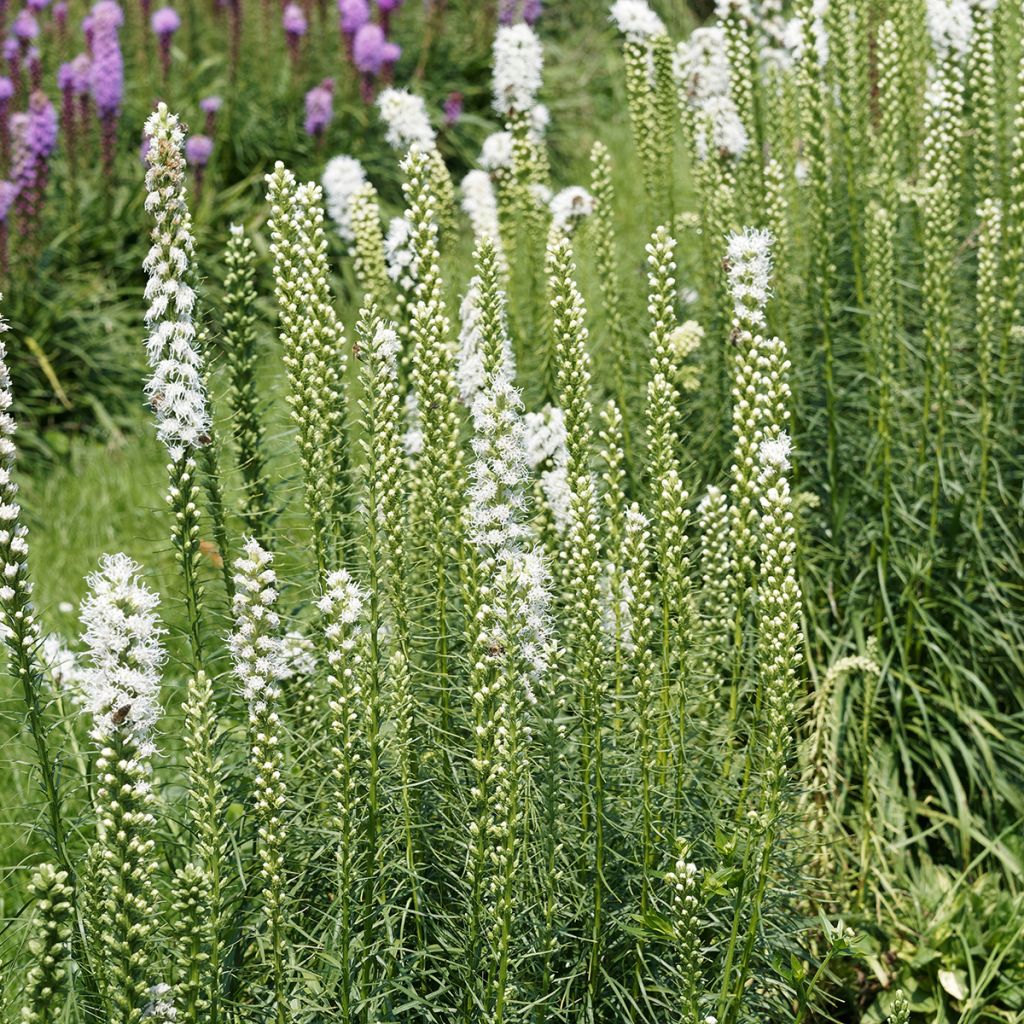

Liatris spicata Floristan White - Dense Blazing star
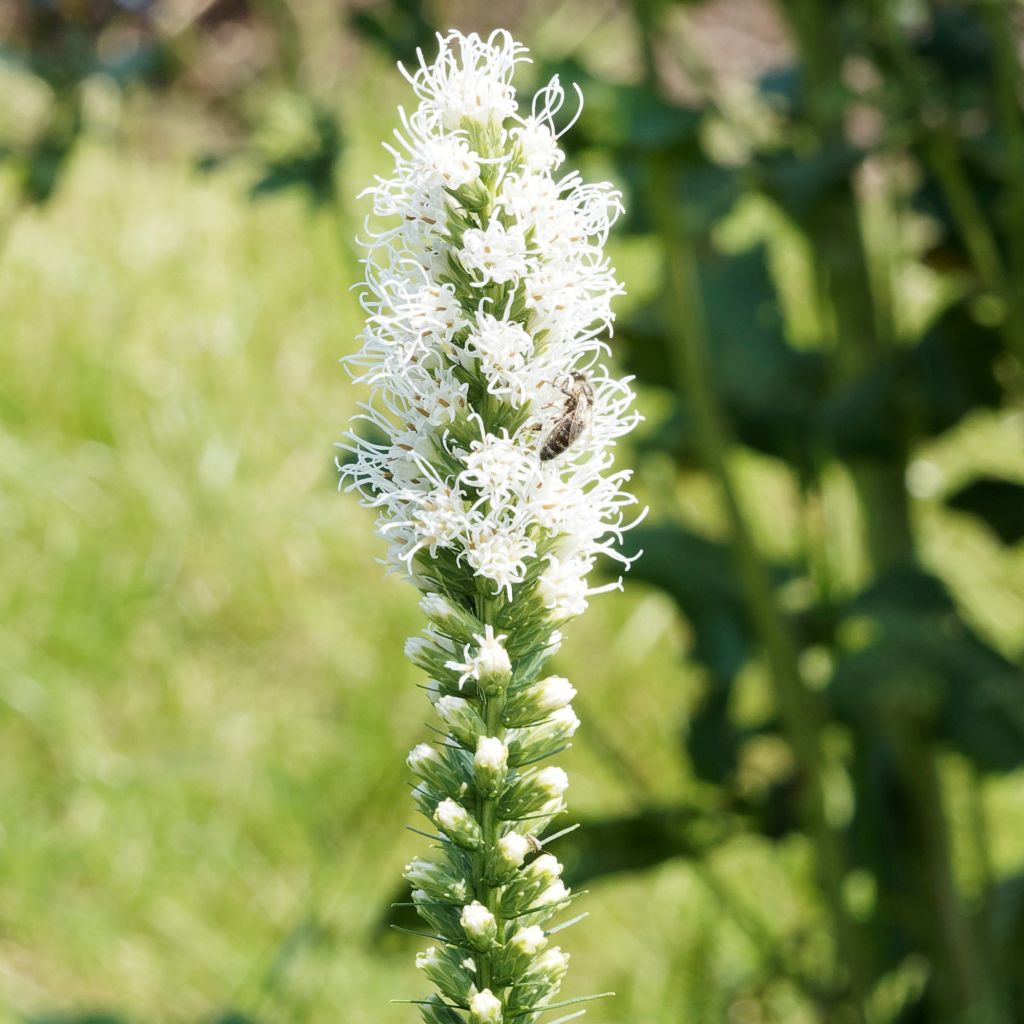

Liatris spicata Floristan White - Dense Blazing star
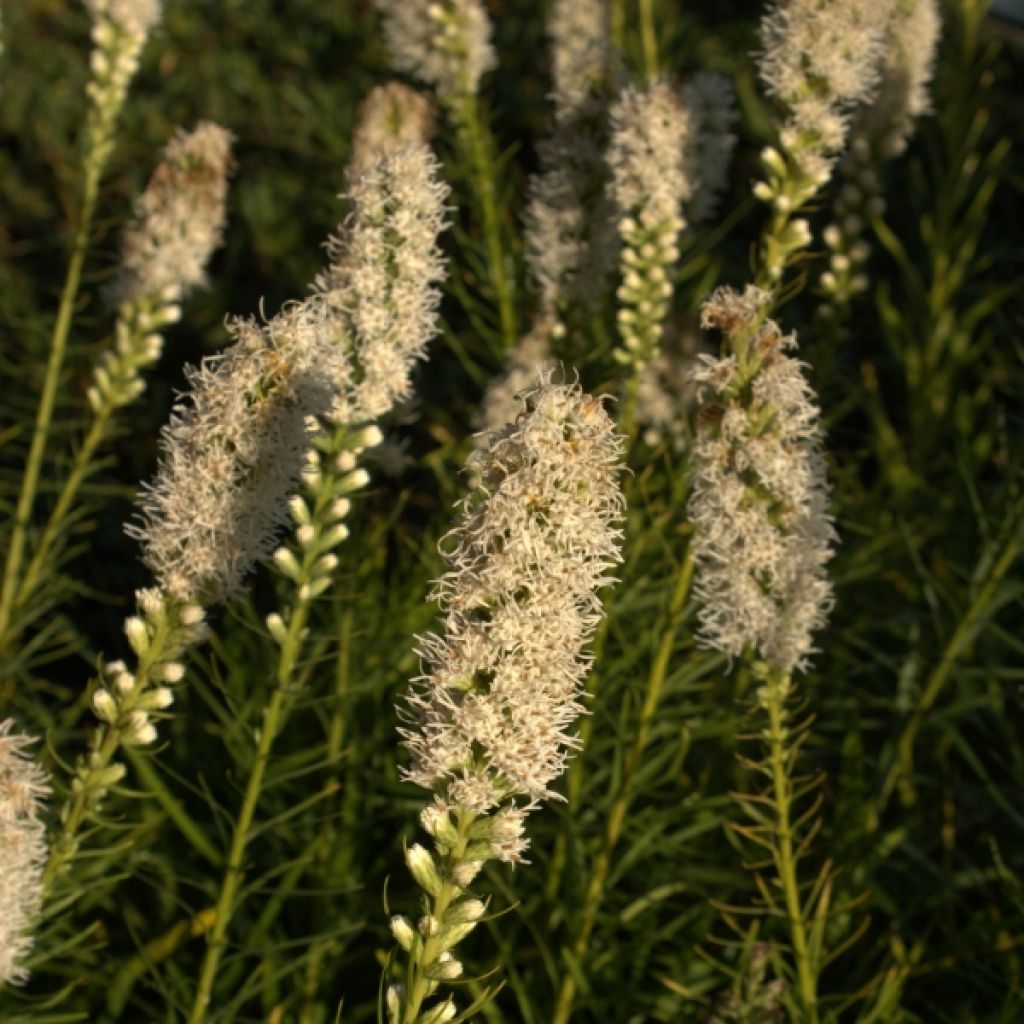

Liatris spicata Floristan White - Dense Blazing star
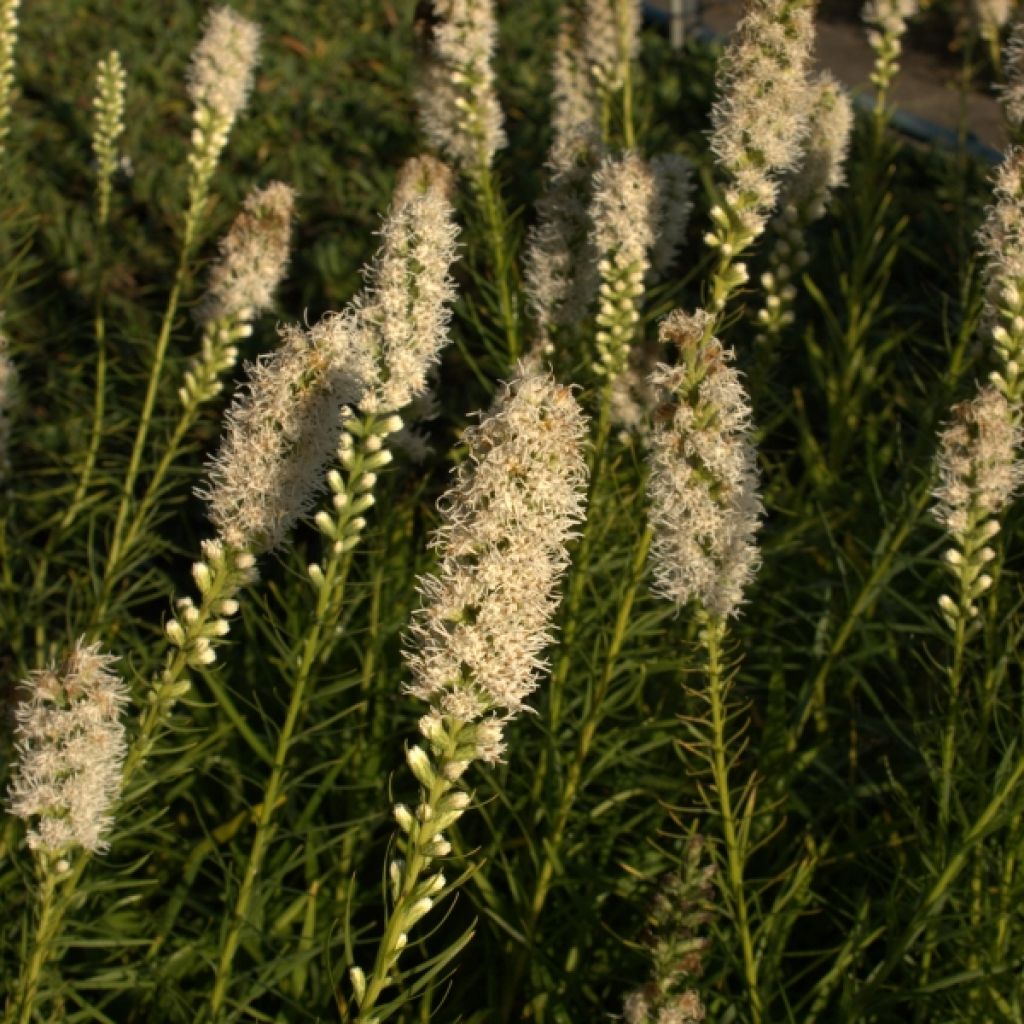

Liatris spicata Floristan White - Dense Blazing star
Liatris spicata Floristan White - Dense Blazing star
Liatris spicata Floristan White
Dense Blazing star, Prairie feather, Gayfeather, Button snakewort
Plant received in good condition in its packaging. Planting in the ground, now to be monitored...
Hélène, 18/09/2021
Special offer!
Receive a €20 voucher for any order over €90 (excluding delivery costs, credit notes, and plastic-free options)!
1- Add your favorite plants to your cart.
2- Once you have reached €90, confirm your order (you can even choose the delivery date!).
3- As soon as your order is shipped, you will receive an email containing your voucher code, valid for 3 months (90 days).
Your voucher is unique and can only be used once, for any order with a minimum value of €20, excluding delivery costs.
Can be combined with other current offers, non-divisible and non-refundable.
Home or relay delivery (depending on size and destination)
Schedule delivery date,
and select date in basket
This plant carries a 12 months recovery warranty
More information
We guarantee the quality of our plants for a full growing cycle, and will replace at our expense any plant that fails to recover under normal climatic and planting conditions.

Would this plant suit my garden?
Set up your Plantfit profile →
Description
Liatris spicata 'Floristan White' is a very beautiful variety of the 'Kansas Feather' with white flowers, taller than the wild species with pink-mauve flowers. Its feathery spike inflorescences have earned this beautiful perennial from the fresh prairies of North America its evocative nickname. Developing from a tuberous root, this liatris forms a beautiful clump of sturdy leafy stems resembling a grass and blooms from mid-summer to autumn, attracting attention with their uniqueness and adding a beautiful vertical touch to flower beds. Lioatris also make an excellent cut flower. To welcome it to the garden, make sure to reserve a sunny spot for it and ensure it is planted in a moist but well-drained soil.
Liatris belongs to the aster family, just like sunflowers and daisies. The most common species in cultivation is Liatris spicata, native to the USA, adapted to wet places and easier to grow in our climates. The 'Floristan' series brings together two cultivars selected from seeds for their greater development: dark purple flowers in 'Floristan Violett' and pure white in 'Floristan White' (Weiss).
Liatris spicata is a herbaceous perennial plant with a root, halfway between a rhizome and a tuber. It grows rapidly and will produce about twenty floral stems after 3 years of cultivation. Its above-ground, deciduous vegetation starts in spring and disappears in winter. From the stump, basal tufts composed of fine linear leaves emerge, measuring up to 40cm (16in) in length. In summer, rigid stems develop, bearing a few shorter leaves, and ending in an inflorescence. Flowering occurs from July to September and is visited by butterflies and bees. It takes the form of upright spikes that can reach over 1m (3ft) in height (on average 90cm (35in)). The numerous small flowers, about 1cm (0.3in) in size, have tubular ligules and bracts arranged in several rows, giving them a very feathery appearance. Liatris flowers open from the top to the base of the spike, lasting for several weeks. The fruit is also decorative: each fluffy fruit is equipped with feathery bristle aigrettes.
This 'Floristan White' Liatris, adorned with large white plumes, is an original, airy and graphic plant for flower beds. For example, pair it with asters (cordifolius and ericoides), Coreopsis, Baptisias, and tall grasses such as Panicetum or Miscanthus, plants that also love the sun. The Kansas feather also has a great effect near water features, with willowherbs, red hot pokers, and other Vernonia species.
Report an error about the product description
Liatris spicata Floristan White - Dense Blazing star in pictures


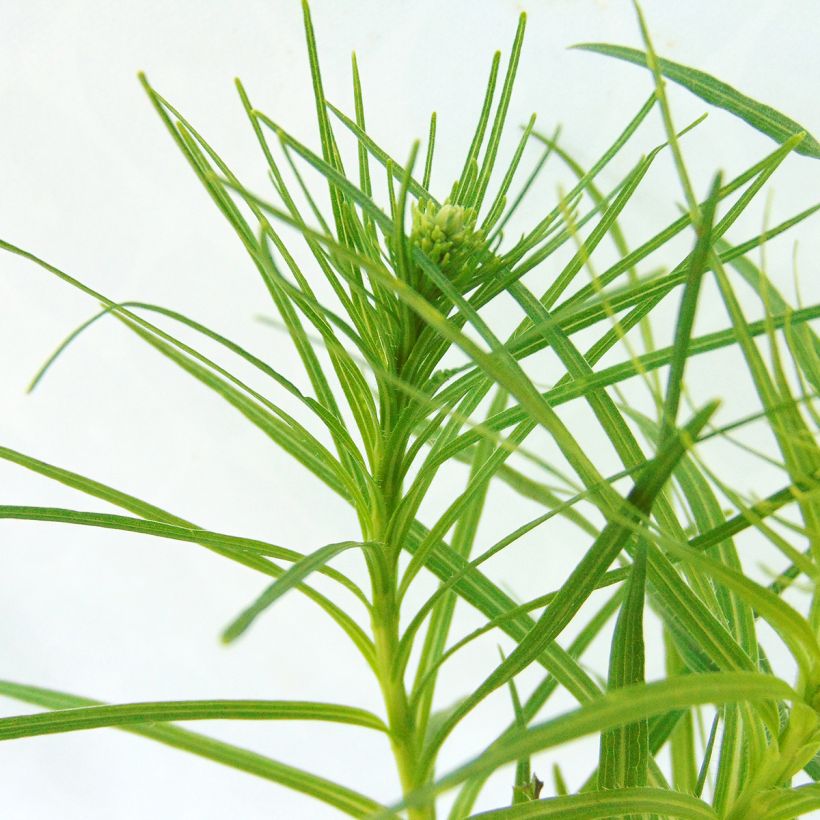



Flowering
Foliage
Plant habit
Botanical data
Liatris
spicata
Floristan White
Asteraceae
Dense Blazing star, Prairie feather, Gayfeather, Button snakewort
Cultivar or hybrid
Other Liatris - Kansas Blazing Star
View all →Planting and care
Liatris Spicata loves firm (clay) soils, moist but well-drained. This variety needs soil that remains moist in summer. However, caution must be taken in winter to prevent root rot in heavy and frozen soils. It thrives in full sun.
Planting period
Intended location
Care
-
, onOrder confirmed
Reply from on Promesse de fleurs
Similar products
Haven't found what you were looking for?
Hardiness is the lowest winter temperature a plant can endure without suffering serious damage or even dying. However, hardiness is affected by location (a sheltered area, such as a patio), protection (winter cover) and soil type (hardiness is improved by well-drained soil).

Photo Sharing Terms & Conditions
In order to encourage gardeners to interact and share their experiences, Promesse de fleurs offers various media enabling content to be uploaded onto its Site - in particular via the ‘Photo sharing’ module.
The User agrees to refrain from:
- Posting any content that is illegal, prejudicial, insulting, racist, inciteful to hatred, revisionist, contrary to public decency, that infringes on privacy or on the privacy rights of third parties, in particular the publicity rights of persons and goods, intellectual property rights, or the right to privacy.
- Submitting content on behalf of a third party;
- Impersonate the identity of a third party and/or publish any personal information about a third party;
In general, the User undertakes to refrain from any unethical behaviour.
All Content (in particular text, comments, files, images, photos, videos, creative works, etc.), which may be subject to property or intellectual property rights, image or other private rights, shall remain the property of the User, subject to the limited rights granted by the terms of the licence granted by Promesse de fleurs as stated below. Users are at liberty to publish or not to publish such Content on the Site, notably via the ‘Photo Sharing’ facility, and accept that this Content shall be made public and freely accessible, notably on the Internet.
Users further acknowledge, undertake to have ,and guarantee that they hold all necessary rights and permissions to publish such material on the Site, in particular with regard to the legislation in force pertaining to any privacy, property, intellectual property, image, or contractual rights, or rights of any other nature. By publishing such Content on the Site, Users acknowledge accepting full liability as publishers of the Content within the meaning of the law, and grant Promesse de fleurs, free of charge, an inclusive, worldwide licence for the said Content for the entire duration of its publication, including all reproduction, representation, up/downloading, displaying, performing, transmission, and storage rights.
Users also grant permission for their name to be linked to the Content and accept that this link may not always be made available.
By engaging in posting material, Users consent to their Content becoming automatically accessible on the Internet, in particular on other sites and/or blogs and/or web pages of the Promesse de fleurs site, including in particular social pages and the Promesse de fleurs catalogue.
Users may secure the removal of entrusted content free of charge by issuing a simple request via our contact form.
The flowering period indicated on our website applies to countries and regions located in USDA zone 8 (France, the United Kingdom, Ireland, the Netherlands, etc.)
It will vary according to where you live:
- In zones 9 to 10 (Italy, Spain, Greece, etc.), flowering will occur about 2 to 4 weeks earlier.
- In zones 6 to 7 (Germany, Poland, Slovenia, and lower mountainous regions), flowering will be delayed by 2 to 3 weeks.
- In zone 5 (Central Europe, Scandinavia), blooming will be delayed by 3 to 5 weeks.
In temperate climates, pruning of spring-flowering shrubs (forsythia, spireas, etc.) should be done just after flowering.
Pruning of summer-flowering shrubs (Indian Lilac, Perovskia, etc.) can be done in winter or spring.
In cold regions as well as with frost-sensitive plants, avoid pruning too early when severe frosts may still occur.
The planting period indicated on our website applies to countries and regions located in USDA zone 8 (France, United Kingdom, Ireland, Netherlands).
It will vary according to where you live:
- In Mediterranean zones (Marseille, Madrid, Milan, etc.), autumn and winter are the best planting periods.
- In continental zones (Strasbourg, Munich, Vienna, etc.), delay planting by 2 to 3 weeks in spring and bring it forward by 2 to 4 weeks in autumn.
- In mountainous regions (the Alps, Pyrenees, Carpathians, etc.), it is best to plant in late spring (May-June) or late summer (August-September).
The harvesting period indicated on our website applies to countries and regions in USDA zone 8 (France, England, Ireland, the Netherlands).
In colder areas (Scandinavia, Poland, Austria...) fruit and vegetable harvests are likely to be delayed by 3-4 weeks.
In warmer areas (Italy, Spain, Greece, etc.), harvesting will probably take place earlier, depending on weather conditions.
The sowing periods indicated on our website apply to countries and regions within USDA Zone 8 (France, UK, Ireland, Netherlands).
In colder areas (Scandinavia, Poland, Austria...), delay any outdoor sowing by 3-4 weeks, or sow under glass.
In warmer climes (Italy, Spain, Greece, etc.), bring outdoor sowing forward by a few weeks.






























